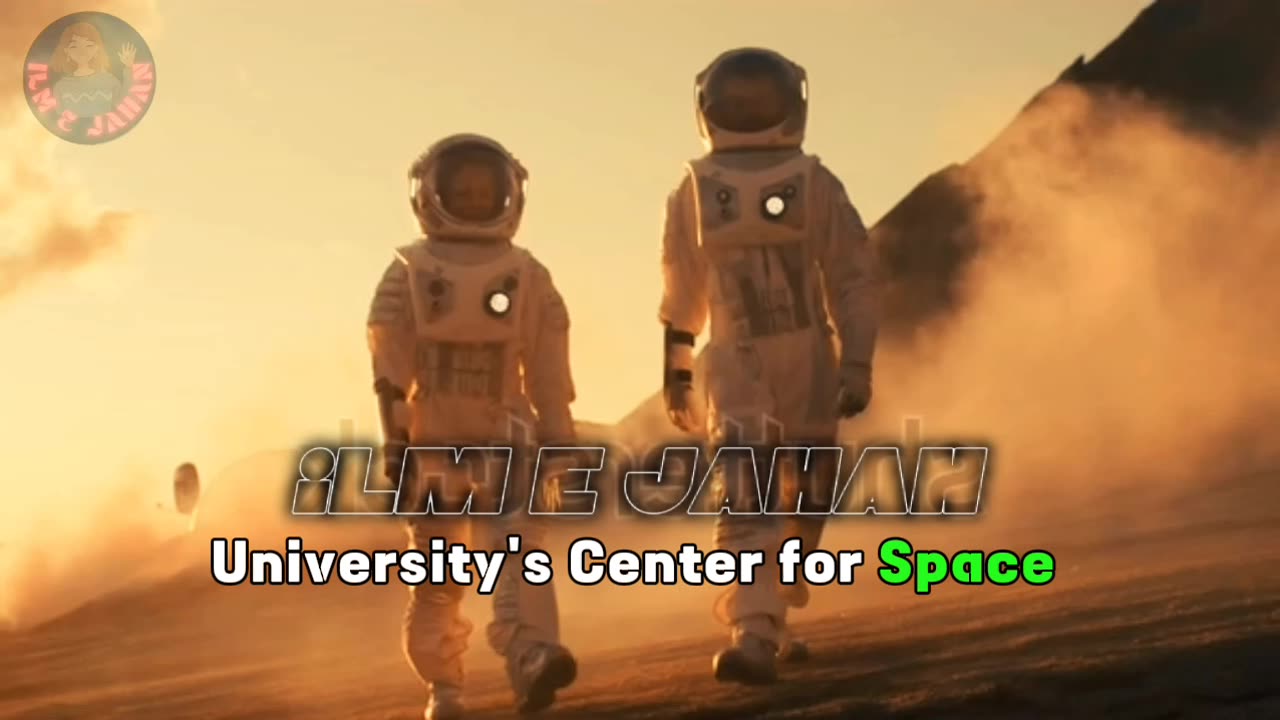Premium Only Content

It’s Time to Study Space Sexology
The prospect of humans becoming an interplanetary species, with plans to establish colonies on Mars and explore other celestial bodies, has led scientists to advocate for the study of reproductive health and sexual behavior in space, a field known as "space sexology." This emerging field is considered essential to ensuring humanity's survival as we venture beyond Earth.
While there have been scientific experiments involving reproduction in space, such as artificially inseminating frog eggs, no comprehensive research has addressed the intricacies of human sexual functions and intimate relationships in space. According to Simon Dubé, a psychologist from Concordia University, it's a crucial aspect of life in space that has been relatively unexplored.
NASA, which has traditionally been cautious about addressing the topic, is now showing a greater willingness to consider research in this area. Their primary concern remains the health and safety of crew members during extended space missions. If a need for in-depth studies on reproductive health and sexuality in space arises, NASA would be prepared to take appropriate measures.
One of the key factors influencing reproduction in space is radiation. Astronauts are exposed to significantly higher levels of radiation compared to people on Earth, as the Earth's atmosphere and magnetic field protect us from most space radiation. The gonads, which include the ovaries and testes, are particularly sensitive to radiation damage, potentially leading to cancer or genetic mutations passed down to offspring.
Another concern is the impact of microgravity, which affects astronauts' biological functions in ways that are not fully understood. For example, some female mice sent to the International Space Station experienced disrupted ovulation and lost their corpus luteum, a structure important for maintaining pregnancies.
So why hasn't NASA conducted more research in this area? According to Virginia Wotring, a professor at Baylor University's Center for Space Medicine, it has never been a part of NASA's core mission to colonize other planets. The constraints of budgets and priorities have limited research in areas that are not immediately essential. However, as we contemplate the possibilities of long-term space travel and colonization, it becomes increasingly important to gather more data on how space conditions affect human biology.
In conclusion, space sexology is an emerging field of study driven by the need to understand human reproduction and intimate relationships in space. As humanity's ambitions expand beyond Earth, researchers recognize the importance of investigating these topics to ensure the well-being and survival of future spacefaring civilizations. Alongside sexual health, a broader understanding of the physiological effects of long-term space travel is essential for preparing for the challenges of extended missions and planetary colonization.
-
 1:45:53
1:45:53
Nerdrotic
6 hours ago $0.27 earnedUnravelling the Secrets of Skinwalker Ranch | Forbidden Frontier #115
71.8K4 -
 41:56
41:56
Athlete & Artist Show
6 hours ago $0.75 earnedAustin Ekeler: Going From "0 Star Recruit" To Leading The NFL In TD's, New Fan App | FROM THE VAULT
21.7K1 -
 2:46:49
2:46:49
Barry Cunningham
11 hours agoNOW THEY FEAR US! | RFKJR STRIKES BACK | JD VANCE ON PRESIDENT TRUMP | AND MORE NEWS!
67.2K49 -
 LIVE
LIVE
Spartan
6 hours agoCharlotte Qualifier watch party + Ranked and Expedition 33
111 watching -
 6:09:54
6:09:54
bigbossrobinson
10 hours agoLIVE - DOUBLE IMPACT - RESIDENT EVIL 4 & METAL GEAR SOLID Δ: SNAKE EATER
32K1 -
 14:37
14:37
Colion Noir
11 hours agoCanadian Police Chief Urges Citizens To Comply With Home Invaders And Hide
78.9K95 -
 3:10:59
3:10:59
OVERKLOC
7 hours ago🔴LIVE - CHILL SUNDAY GAMING - WHO KNOWS WHAT WE'LL PLAY
18.6K -
 5:58:37
5:58:37
FrizzleMcDizzle
9 hours ago $0.02 earnedNightReign - Lies of P: Overture after - Come hang out
17.3K -
 1:18:54
1:18:54
Jeff Ahern
9 hours ago $0.39 earnedThe Sunday Show with Jeff Ahern
65.9K9 -
 32:05
32:05
Tactical Advisor
9 hours agoNew Thermal Target for the Military | Vault Room Live Stream 038
52.1K5